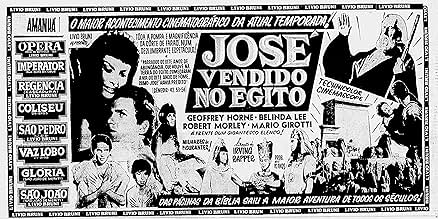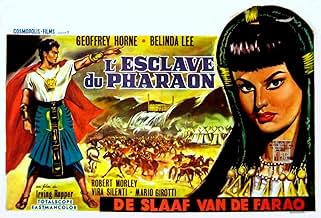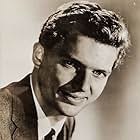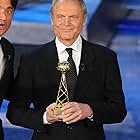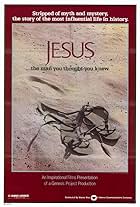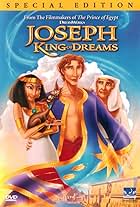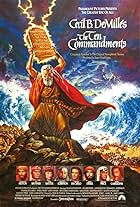A brother is cast out from his family, sold in to slavery and then returns years later as a man of power - but shows forgiveness and compassion to his family through the strength of characte... Read allA brother is cast out from his family, sold in to slavery and then returns years later as a man of power - but shows forgiveness and compassion to his family through the strength of character given to him by God.A brother is cast out from his family, sold in to slavery and then returns years later as a man of power - but shows forgiveness and compassion to his family through the strength of character given to him by God.
- Gad
- (as Antonio Segurini)
- Benjamin as Adult
- (as Mario Girotti)
Storyline
Did you know
- TriviaFinlay Currie, who portrays Jacob, the patriarch of the Israelites, had previously played prominent roles in other biblical epics: Peter in Quo Vadis (1951), King David in Solomon and Sheba (1959), and Balthasar (one of the wise men) in Ben-Hur (1959).
- Quotes
Heneth: Flowers, jewels... Must it always be presents?
Potiphar: The wife of Potiphar has only to name her wish. What is it, my love?
Heneth: I need to be loved.
Potiphar: But I do love you. I love you with all my heart.
Heneth: Yes, Potiphar. I believe that you love me... with all your heart. But look at me. What am I?
Potiphar: The loveliest woman in all Egypt.
Heneth: The unhappiest. Another decoration in your palace. Another trophy to your title. Just one of the chattels which makes you great, Potiphar. But it's not enough.
- Alternate versionsAll current DVD releases of this film feature an abrupt cut in the scene in which Potiphar's wife attempts to seduce Joseph.
- ConnectionsFollowed by Pontius Pilate (1962)
As would eventually became the custom, veteran Hollywood film-makers – among them Frank Borzage, Raoul Walsh, Jacques Tourneur and Edgar G. Ulmer – were engaged to supervise the production of these cheaper Italian epics and so it is that Irving Rapper – best-known for the schmaltzy but solid Bette Davis vehicles NOW, VOYAGER (1942) and DECEPTION (1946) – became involved with bringing to the big-screen the story of Joseph; subsequently, he would be employed in a similar capacity on PONTIUS PILATE (1962). While the co-director here was one Luciano Ricci – who would later (under the alias of Herbert Wise) be the officially credited director of THE CASTLE OF THE LIVING DEAD (1964) despite the reported intervention of two others! – the actors who came on board Joseph AND HIS BRETHREN were far better known. Chief among them were Robert Morley (ludicrously hamming it up as Potiphar) and genre staple Finlay Currie (as a dignified Jacob), while the younger roles were entrusted to an eclectic bunch: Geoffrey Horne (in the title role), Belinda Lee (as Potiphar’s deceitful wife, she featured in several of these Italian cheapies and would eventually die tragically within a year in a road accident), Arturo Domenici (as Potiphar’s ambitious counsellor), Terence Hill (as Joseph’s younger brother Benjamin) and Dante Di Paolo (as the main schemer among Joseph’s jealous brothers).
One may wonder why I’m talking about everything else but the film and, unfortunately, that’s because it is no great shakes. While the story was good enough to be remade thrice on celluloid – as a 1974 TV movie by Michael Cacoyannis, yet again for TV in 1995 and as a Dreamworks animated feature in 2000 – not to mention revamped as a musical extravaganza on the stage, the version under review is dreary, dull and unmemorable. Small wonder, then that the film has fallen into public domain and is available on various budget DVDs in an English-dubbed, pan-and-scan, washed out print which further serves to alienate the viewer.
- Bunuel1976
- Mar 18, 2008
- Permalink
Details
- Release date
- Countries of origin
- Languages
- Also known as
- The Story of Joseph and His Brethren
- Filming locations
- Production companies
- See more company credits at IMDbPro
- Runtime1 hour 43 minutes
- Sound mix
- Aspect ratio
- 2.35 : 1
Contribute to this page



